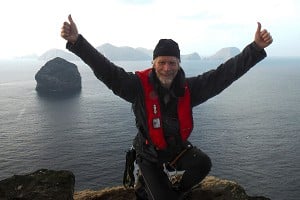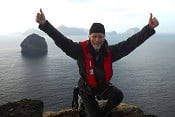In reply to Pietrach:
You want to obtain skills for what? To feel more confident in your skills should you need them, from your OP.
There is such a huge amount of information already on the forum,
Eiger northface thread which is the best thing I have ever read personally.
http://www.ukhillwalking.com/forums/t.php?t=608172
Guocho and Co adding alot of info on this thread.
http://www.ukhillwalking.com/forums/t.php?t=635542
http://www.ukclimbing.com/articles/page.php?id=729
It's definately not a straight cross over from hill walking, there needs to be a sense that you've always been longing for more, it's 100% a head thing- why else would you put yourself in very exposed, very lose, very dangerous cold places where you have a fair chance of dying. So progressively push the boundaries of your exploits, whether that is with more experienced partners or not. A good partner is essential, not necessarily a good climber, just a good guy.
And bear in mind, when things go wrong-it will be major wrong.
Have you got a really good inner voice and do you listen to it? This is important-much more so than the standard you climb or the gear you have.
For me personally, I've done a few big mointain routes in north wales, went to the Alps and summited Mt Blanc, several times (including the approach scramblle to g£uter hut) I thought I may die, and 1 small slip up would ensure you did.
NB:a slip from someone else can be just as deadly, On the bosses ridge 'mt blanc' another party (solo) staggered off the ridge and lurched onto my partner (who was in microspikes) a terrible state, I only found out at the top.
I am now absolutely addicted.
Have fun
Disclaimer: this is really serious, really dangerous stuff, the adjective danger can be overwhelming.
Map
Compass
Headtorch
You can procure anything in the world with these.
Post edited at 10:30









